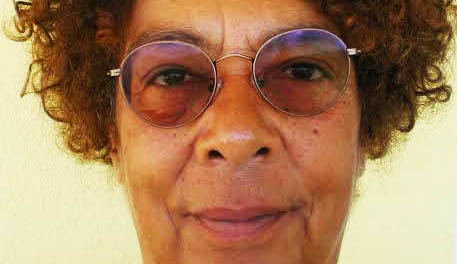 The room is small and the chairs creak, breaking the anguished silence that clings to the walls. The people there cannot be quiet, they get up, take short walks, squirm in their chairs, look anxiously at the swinging door.
The room is small and the chairs creak, breaking the anguished silence that clings to the walls. The people there cannot be quiet, they get up, take short walks, squirm in their chairs, look anxiously at the swinging door.
Four people in the corner, however, are talking and sometimes a short laugh escapes them. It's impossible not to hear the conversation, no matter how much you want to respect their intimacy.
It can be seen that they are brothers, all in their forties, who recall together the adventures of their childhood and the reactions of their “mother”. They goad each other, talking about the fear of one's hospitals, "that's why you're late", or the measures that will be needed from then on, "even if mommy doesn't want to leave the house", because she can't live alone anymore .
The swing door opens and the only woman in the group jumps up and goes after the clerk in charge of the entrances. The brothers, these are silent, they wait. She returns with tears in her eyes, which she tries to hide with a shaky smile. “It's livelier”, he assures. One by one they disappear in the swing of the door, and when they return they always confirm, more to themselves than to others, that “she is better today”, this in hoarse or choked voices.
I too look at the door and meanwhile, as if I were the elastic of a slingshot, I travel, like the four brothers, between the past and the present. A bit faded – it's been over 50 years now – what I think is my first memory of my brother comes to mind. It's Christmas and he's surrounded by a pile of toys, not caring about them, clutching a red velvet coat, which he cradles in his chubby arms. “My 'tasaquinho', I get a lot of my 'tasaquinho'!”.
I must be smiling because my daughters are looking at me weirdly. So it's better to pull the memory hook out loud, so they don't think their mother is last for once.
And I remember my brother and I playing hide and seek, with our uncle a little older than us, the belated result of our grandfather's second marriage. We took advantage of him being albino, we didn't need to hide. We were against the sun to call and he, poor man, with those eyes always red, was blinded by the light. Yes, children are cruel.
Or the other time, when he and I stayed in the car, bored waiting for Dad and the curiosity was stronger. We opened his “business folder”, we pilfered a thousand-escudo note from every pack we found there, between fear and happiness at getting rich. If there was trouble afterwards, I don't remember.
At the time of the parents' divorce, my brother stormed into my room and shouted: “If they send us by plane again to the 'puto' (Portugal in Kimbundo), my brains will jump out”.
My daughters listened and laughed at the right time, although I suspect they knew at least a few stories backwards, a family heritage regularly revisited.
When it was my turn to go through the swinging door, I found a man in a coma with tubes sticking out of his mouth and nose, others attached to his arms, chest, even legs, an incongruously bright white dressing covering him. part of the head.
The doctors told me in a flat voice that the prognosis was very reserved and if he woke up, he would have very serious sequelae. The coma was so deep, “due to cranioencephalic damage”, that it was in Grade 3, the lowest on the Glasgow scale, used to assess a person's level of consciousness, and whose highest value is 15.
The youngest of my daughters cried drool and snot on her way back through the swinging door, and the deep circles under her eyes grew even more accentuated at the other. We went out into the cold December night, in fungal silence, and the eldest then said: at Christmas, I'm going to make rice pudding, in honor of her uncle. We all hated rice pudding, my brother and uncle's favorite dessert.
I am still wondering today, three months later, where do we go when we die before we die.
Author: Conceição Branco is a journalist


















Comments